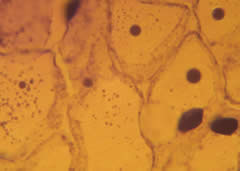Mesothelioma Subtype Predicts Poor Survival Odds
Histological subtyping, which involves classifying mesothelioma types by certain microscopic features, plays a crucial role in diagnosis, treatment, and determining life expectancy in malignant pleural mesothelioma. The three major subtypes of pleural mesothelioma are epithelioid, sarcomatoid, and biphasic. While all three types carry a poor prognosis, epithelioid mesothelioma, which accounts for 50 to 70 percent of cases, usually responds better to treatment than the other two types. But a new published study suggests that that is not always the case.
Doctors at the University of Zagreb School of Medicine in Croatia say there is a subtype of epithelioid mesothelioma that carries as poor a prognosis as the sarcomatoid and biphasic types. To reach that conclusion, the team analyzed biopsy specimens and survival data from 108 mesothelioma patients diagnosed between 2000 and 2010 at the University’s Institute of Pathology.
Of the 108 cases, 98 were epithelioid mesothelioma, 6 were biphasic and 4 were sarcomatoid. Median overall survival for the patients with epithelioid mesothelioma was 10.5 months. Patients with biphasic mesothelioma had a median overall survival of 6.5 months, while those with sarcomatoid mesothelioma survived for a median of 4 months. However, for patients with a type of epithelioid mesothelioma called pleomorphic, the median survival was just 3 months.
“Our results indicate that pleomorphic subtype is a predictor of poor prognosis and support classifying it with sarcomatoid or biphasic malignant pleural mesothelioma,” the researchers conclude in Virchows Archiv, an international pathology journal. In microbiology, pleomorphism refers to the ability of some cells to change their shape or size as their conditions change. Some other researchers have suggested that pleomorphic mesothelioma should be classified as sarcomatoid, rather than as a subtype of epithelioid.
Histological subtyping is typically done by a pathologist who examines mesothelioma tumor tissue samples under a microscope. Histology is important for treatment planning since different types of mesothelioma cells respond differently to treatments. Histology is also the only way to definitely diagnose mesothelioma.
Source:
Brcic, L et al, “Reproducibility of histological subtyping of malignant pleural mesothelioma”, October 10, 2014, Virchows Archiv, Epub ahead of print






